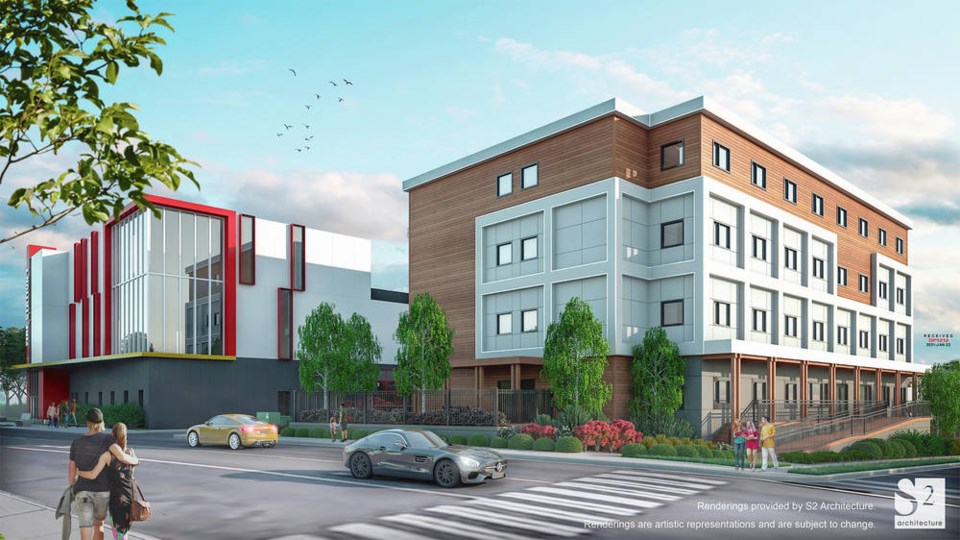B.C. Housing has submitted applications to the City of Nanaimo for the first two housing projects in a multi-building partnership designed to address chronic social problems in the community.
A total of 110 supportive-housing units will be constructed in the two projects.
“This is very much a win-in for this community because it addresses the most serious issue we face — as it is the most serious issue that every other municipal government in the province faces right now,” said Nanaimo Mayor Leonard Krog, noting an estimated 600 or more people in Nanaimo are living without homes.
“There are a number of folks who have mental health and addiction issues who do require supportive housing and there is a portion of people who require complex care facilities and housing.”
Concerns about people living outdoors, many with mental health and addiction problems, are longstanding in the community. Two temporary supportive modular housing facilities were set up after a tent city with approximately 300 residents was dismantled in late 2018.
The first two projects are a “great start,” Attorney General David Eby said in a statement.
One four-storey building on city land at 285 Prideaux St., which will be owned by Nanaimo, is designed with 51 units for people who are without homes or are at risk of homelessness.
The Nanaimo Region John Howard Society will operate the building, working with people to help stabilize their lives.
Plans call for a 7,050 square-foot building, with its main entrance off Prideaux Street. An existing city-owned structure on the site will be demolished. Next door is the new fire hall, now under construction.
B.C. Housing is seeking a development permit for the building. Features include an outdoor amenity space facing Fitzwilliam Street, and new trees on Fitzwilliam and along Prideaux streets. The project is expected to go before Nanaimo’s design advisory panel.
Another four-storey building is planned for a now empty lot at 702 Nicol St., owned by the province. A building-permit application says it has an estimated construction value of $12 million.
The 8,740-square-foot rental project, referred to as a personal care facility, was designed with 59 supportive long-term-housing units for people requiring special care. It has a community meeting space on its lower floor.
The facility would include 14 homes for women under a bridge-to-housing program, which provides beds, meals and showers for women in need, according to the province.
It will go before council in coming weeks for approval.
Under a memorandum of understanding signed last year between the province and city, a total of 315 housing units are to be built on six sites.
The agreement calls for three buildings featuring about 125 affordable rental units for people with low to moderate incomes, as well as four supportive buildings for 190 people.
The province will construct the buildings, said Krog.
Last month, mayors of B.C.’s 13 largest municipalities called on the province to serve people with severe mental-health challenges and other issues by starting up new “complex care” housing facilities.
The mayors proposed five locations, each with between 40 and 50 beds, for people who need more intensive assistance than exists in supportive housing projects. They recommended that one site be on Vancouver Island.
Krog noted that Eby and Mental Health and Addictions Minister Sheila Malcolmson received mandate letters from Premier John Horgan instructing them to work toward providing an increased level of support, with additional access to nurses and psychiatrists, for those who need higher levels of care.
cjwilson@timescolonist.com



